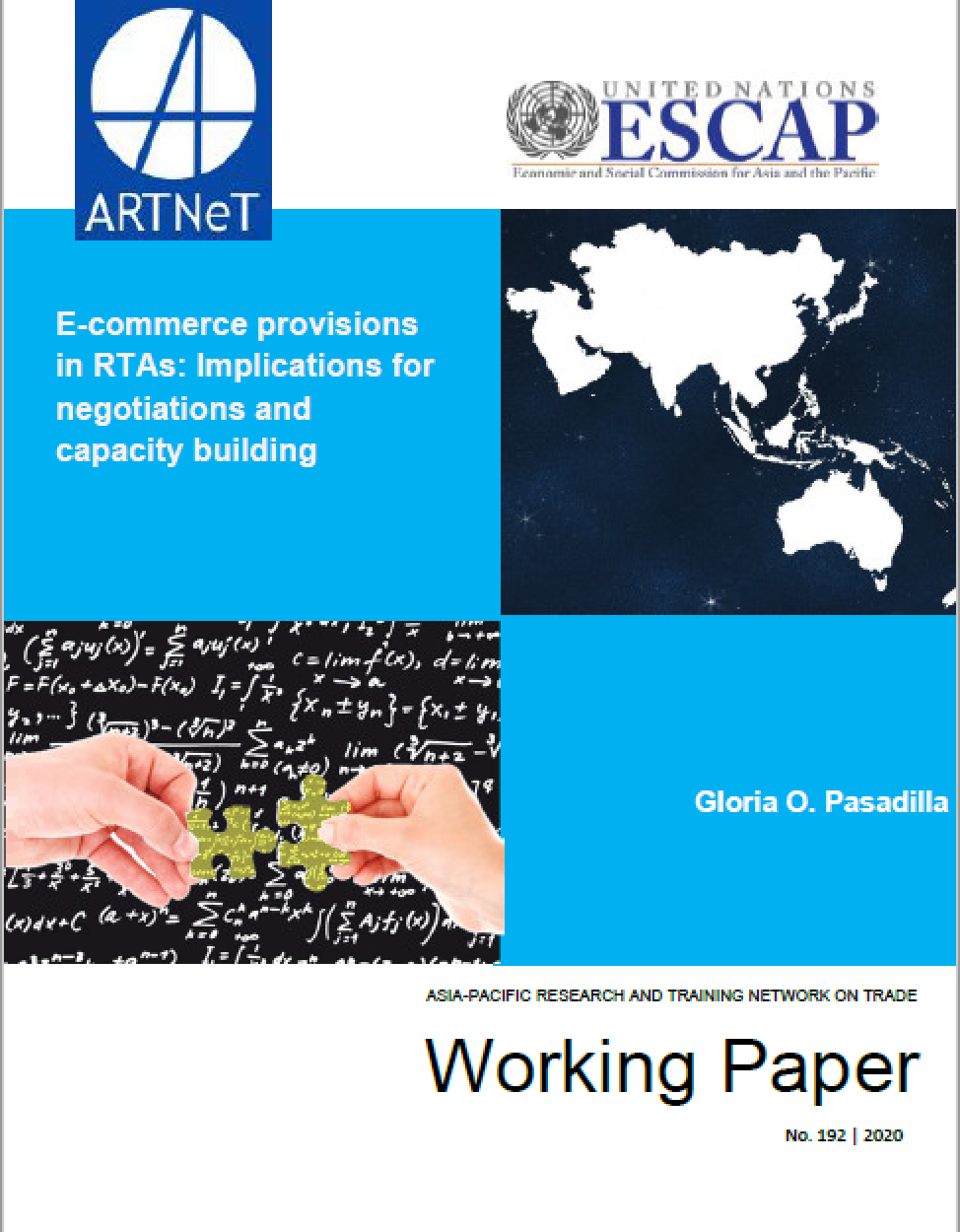E-commerce provisions in RTAs: Implications for negotiations and capacity building

This paper addresses the regulatory and policy environments conducive for e-commerce to thrive. In particular, as regulatory issues affecting e-commerce have become more prominent in recent regional trade agreements (RTAs), the paper seeks to investigate their role in setting the regulatory standard in this area. Indeed e-commerce- or digital trade-related obligations and commitments have grown deeper and broader in more recent RTAs compared to earlier ones. Since RTAs have become laboratories for rule-making, it is likely that some of its e-commerce-related obligations would find its way in a plurilateral/ multilateral agreement on e-commerce if one gets agreed in the future. The paper reviews previous findings on RTA provisions in e-commerce and explains the rationale for the inclusion of certain provisions in relation to promoting growth in e-commerce. It zooms in on two recent RTAs, one involving the European union, and another the Unites States of America, as both are seen as building “model provisions” to follow by others. These two agreements were not covered in past studies so this paper contributes to the completeness of literature in this regard. Based on what emerge as typical obligations and commitments in past and recent RTAs, possible negotiations and capacity building implications for least developed and middle-income developing countries are discussed.
